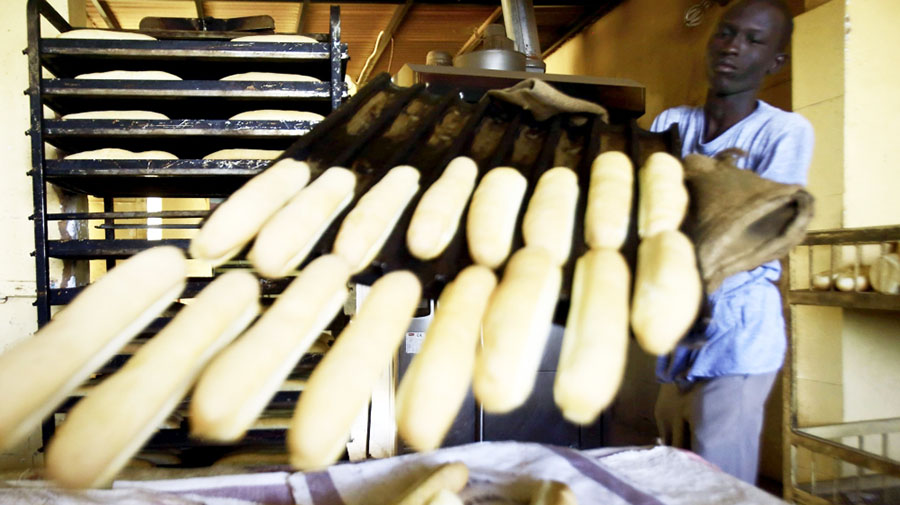
Sudan: Citizens complain about rising prices
Report - Moatinoon
"The curse of God on war and those who caused it, they do not take into account the situation of the citizens. They do not merciful us." This is how the cleanser raised his voice, amidst a gathering of citizens lined up in a bakery in Atbara, looking at the size of the bread, which is less than a fist, and decreasing to 14 instead of 20 pieces for a thousand pounds.
After an artificial bread crisis in the city that lasted for several days, citizens woke up to an increase in bread prices by more than 25%. Despite officials statements not to approve any increases in the price of bread, reality belies those statements.
The Sudan is experiencing precarious economic conditions prior to the outbreak of the war between the armed forces and the Rapid Support Forces (RSF) on April 15, and this has worsened as fighting between the parties continues so far. While war-affected areas are experiencing unprecedented catastrophic humanitarian situations, relatively safe states are experiencing similar situations due to the continued influx of displaced persons.
The World Banks latest report said that the ongoing conflict in the Sudan had severely affected the economy. It has displaced more than 7 million people, according to United Nations figures. This has placed significant financial pressure on the country, leading to higher prices and rents. The conflict has also stagnated Sudans economy, hampering much of trade and transport, impeding agriculture, halting many payroll payments and causing serious infrastructure damage. As a result, the World Bank expects the Sudans economy to contract by 12 per cent in 2023, highlighting the urgent need for effective economic reforms and peacebuilding measures.
In Port Sudan, the Department of Transport and Petroleum implemented the Red Sea States new price increase for the 12.5 kilo gas cylinder. The latest increase was over 100%. The Transport Department directed all relevant companies, which includes the implementation of this decision from January 18.
Nawal, an employee of Port Sudan, says this increase adds a new burden to poor families. "Its not just that, after days the black market will see significant increases after the cylinders disappear. this is usually the case ".
Displaced persons in the various states of the Sudan suffer from higher prices from housing prices to daily needs. Some reports suggest that the future may be worse if the world is not remedied, especially as the war extends to the islands jurisdiction, as production of the islands wheat project is under threat this season, leaving about 1 million acres of the winter agricultural cycle.
The Sudanese Government had decided to cultivate more than 1 million acres in the island, north, Nile and White Nile states, according to a researcher at the Sudanese Ministry of Agriculture.
The researcher said that some 359 billion Sudanese pounds (US 597 million) have been allocated to cultivate winter crops, especially wheat.
"But this plan announced by the government shows no signs of implementation on the ground," he said.
Earlier a study based on satellite imagery by the humanitarian organization Mercy Corps, published last October, showed a decline in cultivated land in the Sudan.
Al-Mukhtar, Assistant Resident Representative of the Food and Agriculture Organization of the United Nations (FAO) in Sudan, says the area of cultivated land has fallen by about 15% from five years ago.
Maize production was expected to fall by about a quarter compared to last year and millet by half, mostly because of the fallout from the conflict.

